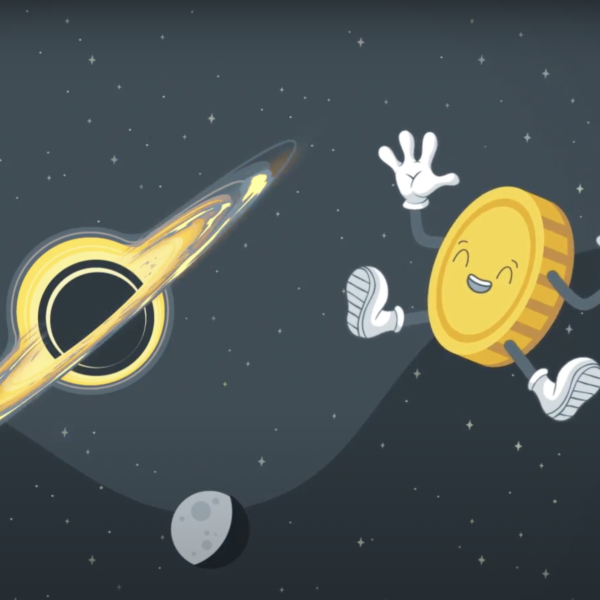

Money and children: how to teach the value of money
Learning the value of money can be so much more than a game for children. Passing on the values of economy to them can bring them values such as responsibility, collaboration, saving, learning to negotiate, or even entrepreneurship. Experts recommend starting to talk about private and family financial management from the age of seven, when children can become aware that the ATM does not give money because it is magical, but because adults, with their work, earn it and keep it in the bank.
It is within the family that the first values about money are learned. Today, most children in our society have grown up in a consumerist system that has made them used to having it all, and having it all now. In this sense, the first lesson to be learned is that access to money is limited to one’s own productive capacity. They need to be taught to see the value of living within their limitations, and to be aware from a very young age that knowing how to spend is as important as knowing how to save.
Children and teenagers, the great consumers
Montse Junyent, educated in business management and administration, advises passing on to children “the value of money, which is hard to earn and must be used ethically“. Show them, from an early age, that all the decisions we make have an economic impact, from buying and accumulating toys, to the practice of buying and throwing, food waste, or even the use of plastic bags. Children can understand that one of these bags can end up in the sea and take four hundred and fifty years to disintegrate. Make them aware that the Earth is finite, and we must take responsibility and take care of it through sustainable consumption actions. Adults and children must be consistent with this idea and act responsibly in all areas, in our relationship with people, with the environment, with the world, or with our way of consuming.
Junyent also defends the economy of the common good, with the aim of “contributing to the construction of a more sustainable and fair life system”. She is committed to “transmitting and publicizing sustainable alternative economic models and helping children to grow as committed people, with criteria, information, and a desire to change what they do not like.” That is, to give children all the tools that allow them to be independent and make their own decisions, based on values such as commitment, sustainability, honesty, innovation, and creativity.
Values that can be passed on in many ways, including through games or stories, and that begin in school. Sustainability, for example, is one of the issues of most concern today, and therefore much talked about within the education system. On the other hand, according to Junyent, children are not taught to talk about economics from an ethical and responsible point of view as much as they should.
The value of money through pay
Many parents have doubts about whether to give money to their children. They often wonder when they should start giving their children allowance, and what the ideal amount is.
Allowance can be an important way of teaching children how to manage and value money, a learning that will serve them well in the future. There is no set age to start using money, but it is essential that when they do, they understand its value and the importance of saving.
Some parents associate pay with doing household chores, a view that many questions, arguing that all members of the family should collaborate in this type of activity. Whatever the mentality, the point is that the model of education that the child receives must be coherent. Therefore, it is not a question of whether to pay or not, but to find the perfect formula for learning through values.
Suggesting to children what they should spend their allowance on
As the child gets older, the allowance can be increased, always depending on the use that is made of it. It is important to suggest to children what they should spend it on, taking into account their wishes and the need they have for the product in question. Beyond avoiding the purchase of products that may not benefit them, it is important to establish a fluid conversation, without imposing anything, where we make them see the consequences of each of their purchases. It will also be a good time to show them new forms of consumption, always opting for a sustainable consumption model, which can provide a real benefit and for as long as possible over time, and for them to understand, in short, that money is there to make their lives easier and that using it unconsciously can lead to negative situations.
We usually start this teaching at around five or six years of age, although it can also be beneficial to do so at preschool age. For example, you can show them how picking up their toys can have a reward, whether in the form of a treat or something else, the point is to learn that if our actions have a positive impact, we will be rewarded. And maybe at first it will be through material things, or when we start working it will be through money, but over the years this teaching will mean that the best reward is the one we make for ourselves, based on our own values.
Teaching to save and share
A good way to show the importance of saving can be to divide the money that the child receives, from an early age, into two parts. The first is in the form of a piggy bank that they can keep at home, where they can keep all the money that can be spent, which would be the daily economy. On the other hand, you can have a bank account where you can put money for future savings. In this way, he will create a relationship with money from both perspectives and understand its importance.
Another important learning will be about sharing. Money does not have to be an individual possession, it can also be shared. An idea that may seem controversial socially, as we relate to money from the point of view of possession and, therefore, it individualises it. Educating children in this issue will allow them to experience this relationship from another point of view, with a more collective vision and social responsibility. It is important to show, by example, that money can be a tool to help others, from making donations to the most disadvantaged to shopping in a specific shop where the profits are used for social projects. There are many ways to help, and it is worth instilling this habit in children and young people.
In conclusion, children need to be taught clear lessons about money, and the best way will always be through practice, copying the behaviours they see at home. Therefore, parents should be the example of this learning, teaching them not to buy on impulse, but to plan their goals, both in the short and long term. When the time is right, they can be encouraged to do small paid chores, and if approached from an educational point of view, giving them pay can become a decisive way of teaching children to manage and value money, a lesson that can mark their lives. Finally, and taking into account the weight that the new generations carry for the future, focus on teaching based on the construction of a more sustainable and fairer system of life for all.
Do you want to be the first to receive the latest news about 11Once? Click here to subscribe to our Telegram channel.






Bon article!! Heu pensat en obrir un compte als menors de 18anys, tal com fan a altres fintech??
Bona explicació!👍
Gràcies, Jordi!!!
👏
Gràcies, Daniela!!!
Puc obrir un compte a un menor?O haig d estar com a titular.L ’11 nomès permet un compte per titular?
Per obrir un compte s’ha de tenir la majoria d’edat, i, de moment, els comptes només són unipersonals, i un sòl compte per persona, a no ser que tinguis dos números de telèfon diferents i més d’un correu electrònic. Moltes gràcies pel teu comentari, Maria Blanca.
M encanta
Celebrem que t’agradi. Moltes gràcies!
👍
súper!!
Molt be 👍
Moltes gràcies, Josep!
Es, bona cosa que rls infants sapiguin i aprenguin també el valor de les coses, no poden pensar que manen del cel
Doncs sí, Alícia, és tal qual dius. Moltes gràcies pel teu comentari.
Donde moltes bonos idees
Ens alegrem que t’agradi Carme, esperem que a més, sigui útil. Gràcies per seguir-nos!
Seria possible que en l’educació vigent dels nostres fills i nets poguessin tindre col•laboració d’entitats com l’11onze ?,jo penso que seria positiu.
Oi tant! per aquest motiu 11onze és una comunitat, perquè ens preocupem per totes les persones i entitats que treballen per millorar el nostre petit, gran país! Gràcies Ramon! Entre tots ho farem possible!
Gràcies a tot l’equip editorial .Feu molt bona feina.
Moltes gràcies per les teves paraules, Jordi. Volem empoderar la ciutadania amb diferents continguts i amb informació que els hi pugui ser d’utilitat en el seu dia a dia. Benvingut a la Plaça!
Es un tema primordial que s’ acostuma tractar sense reflexió. M ‘ agrada el concepte “conversa fluida sense imposar res” Serveix per a la majoria de situacions en la relació pares fills.
Interessant i una bona lliçó pels pares d’avui dia. És vital i primordial que tal com hem deixat que evolucioni tot el consumisme i les “suposades” necessitats “vitals”, els pares ensenyem i donem totes les eines possibles perquè els nostres fills puguin ser reeducats en aquest terreny de l’estalvi i l’ús dels diners, sobretot tenint en compte els valors del compromís, l’estalvi, l’honestedat i la sostenibilitat. Tenim feina!
M’encanta!!!!